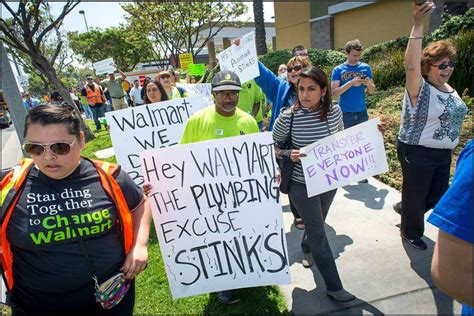The internet allows individual workers to go public with experiences that trigger public outcry.
互聯(lián)網(wǎng)使員工個(gè)人可以將引發(fā)公眾譴責(zé)的經(jīng)歷公之于眾。
The results can be swift and, often, far more severe than they might be for complaints made internally.
這樣做可能很快產(chǎn)生結(jié)果,但后果往往比只在公司內(nèi)部進(jìn)行投訴要嚴(yán)重得多。
On Twitter, the #MeToo movement was at its core a mass action by women against workplace harassment, intimidation, and bullying,
在推特上,#MeToo運(yùn)動(dòng)的核心是女性對(duì)工作場(chǎng)所發(fā)生的騷擾、恐嚇和欺凌事件進(jìn)行的大規(guī)模反抗活動(dòng),
and it brought about the downfall of hundreds of senior executives. Even small incidents can provoke mass outrage.
這場(chǎng)活動(dòng)導(dǎo)致數(shù)百名高管下臺(tái)。即使是小事也可能引發(fā)公眾的憤怒。
About a year ago, a Banana Republic clerk wrote on Facebook that her district manager had told her to remove the box braids she wore
大約一年前,一位香蕉共和國(guó)(Banana Republic)的職員在臉書(shū)上發(fā)帖說(shuō),她的區(qū)域經(jīng)理讓她不要再編那些小長(zhǎng)辮兒了,
because they were "too urban" and "unprofessional." Her post was shared more than 16,000 times and,
因?yàn)樗鼈兲保粔蚵殬I(yè)化。這個(gè)帖子被轉(zhuǎn)發(fā)了16000多次,
soon after, the company said the manager had been fired.
該公司很快表示已經(jīng)解雇了這名經(jīng)理。
Some 230 new worker groups have sprung up in the past decade, forming the backbone of what's come to be called alt.labor.
在過(guò)去的十年間,約有230個(gè)新的員工團(tuán)體涌現(xiàn)出來(lái),形成了后來(lái)稱之為替代勞工(alt-labor)的骨干力量。
Among them, Organization United for Respect, known as OUR, has become expert at uniting workers through technology.
其中,尊嚴(yán)團(tuán)結(jié)組織(Organization United for Respect),已經(jīng)成為利用技術(shù)手段團(tuán)結(jié)員工的專家。
Spun out of a movement by Walmart workers to petition the country's biggest employer for change after several traditional union drives failed,
在幾次傳統(tǒng)工會(huì)罷工失敗后,尊嚴(yán)團(tuán)結(jié)組織帶領(lǐng)沃爾瑪員工發(fā)起情愿活動(dòng),要求美國(guó)最大雇主沃爾瑪公司進(jìn)行改革,
the group has broadened its mandate to include all low-wage workers, particularly in retail.
至此,尊嚴(yán)團(tuán)結(jié)組織已擴(kuò)大其職權(quán)范圍,將所有低收入員工,尤其是在零售業(yè)工作的員工也納入其管轄范圍。

When Toys "R" Us, preparing for liquidation, said it wouldn't pay severance to more than 30,000 employees, OUR organizers stepped in.
玩具反斗城公司準(zhǔn)備進(jìn)行破產(chǎn)清算時(shí)曾表示,不會(huì)向三萬(wàn)多名員工支付遣散費(fèi),尊嚴(yán)團(tuán)結(jié)組織隨即介入。
They ran online ads to reach workers,connecting them first with a peer-to-peer texting tool, then one-on-one phone calls, then committee calls.
他們通過(guò)在線廣告找到那些員工,先用點(diǎn)對(duì)點(diǎn)短信工具聯(lián)系他們,再進(jìn)行一對(duì)一通話,然后召開(kāi)委員會(huì)電話會(huì)議。
The workers gathered in Facebook groups to commiserate, share strategies, and organize demonstrations online and in real life.
員工們聚集到臉書(shū)小組中,同情彼此的遭遇,分享策略,并在線上、線下組織示威活動(dòng)。
Eventually, KKR and Bain Capital, the company's private equity owners, agreed to put up $20 million for ex-employees
最終,玩具反斗城公司的私人股本所有者科爾伯格公司和貝恩資本公司同意為前雇員提供2000萬(wàn)美元遣散費(fèi),
—short of the $75 million workers say they're owed but a concession the firms weren't legally obliged to make.
這與員工表示所欠款項(xiàng)7500萬(wàn)美元相去甚遠(yuǎn),但公司表示不會(huì)在法律上做出讓步。
OUR is now putting Sears Holdings Corp. employees in touch with Toys "R" Us workers who can preach the power of collective action.
目前,尊嚴(yán)團(tuán)結(jié)組織正在讓西爾斯控股公司和玩具反斗城公司的員工保持聯(lián)系,發(fā)揮集體行動(dòng)的力量。
Like roughly 95 percent of all retail workers, Toys "R" Us and Sears employees aren't in a union.
和95%左右的零售業(yè)員工一樣,玩具反斗城公司和西爾斯公司的員工不在同一個(gè)工會(huì)組織中。
Historically, retail's been a hard industry to organize. Unions were built when the U.S. economy was powered by factories employing thousands of people.
一直以來(lái),零售業(yè)都是一個(gè)難以組織的行業(yè)。工會(huì)是在美國(guó)經(jīng)濟(jì)由雇傭數(shù)千人的工廠影響時(shí)建立的。
When it comes to retail, there are just too many stores, with too few employees attached to each, turnover is high, and management is often quite hostile.
而零售業(yè)擁有眾多商鋪,員工之間彼此聯(lián)系非常少,營(yíng)業(yè)額很高,但管理層卻常常充滿敵意。
The same is true for restaurants. Even big companies with thousands of workers on one campus-Google or Tesla Inc., for example
餐館的情況也是如此。即使像谷歌或特斯拉這種在一個(gè)園區(qū)擁有數(shù)千名員工的大公司
—are a mix of vendors, contractors, employees, supervisors, and managers who can't often be represented by a traditional union.
也都是由供應(yīng)商、承包商、員工、主管和經(jīng)理組成的混合群體,這些人往往不能由傳統(tǒng)的工會(huì)來(lái)代表。


